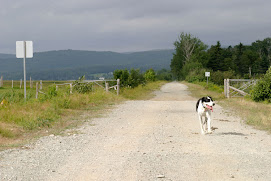Things are built in China at an incredible pace. Need a new airport expressway for the Olympics? Done. Decide to create a new economic zone in Shanghai across the river with skyscrapers that rival Manhattan? Done. Projects the size of the Big Dig are no big deal.
On the other hand, consider the Walden Street Bridge in Cambridge. In the 1990s, engineers noticed that the 86-foot long two-lane bridge needed repair. A public meeting was held in April 2000, construction began six years later in October 2006, and the bridge reopened last December after over two years of construction.
This lethargic pace was disruptive for the neighborhood and commuters who use Walden Street, and it’s frustrating for the rest of us. Can’t we get things done in Cambridge efficiently, like they do in China?
This problem of bureaucratic stagnation is an argument used by both the left and right to advocate for pushing control in different directions.
Advocates for small government argue for greater local control, as Mark Steyn does in his wonderful anecdote about two bridges in his New Hampshire town. On the first, the town waited six years for State funds to cover 80% of the cost and saw their 20% share increase to more than the original 100% estimate. When another bridge needed repair, the town hired a local contractor and paid for the entire project. It was completed in two months and cost 1/14th of the State estimate.
Advocates for greater federal control—in particular, our new President--attempt to focus the frustration with government sluggishness to generate excitement about “getting things done.” The metaphor of bridge repairs is wrongly applied to all manner of legislative fixes—it’s broken, the solution is obvious, let’s just get it done! After all, a country that put a man on the moon can fix our broken health care system.
“Legislative logjams” however are not the same as bridge repairs. The solution to complex problems is rarely so obvious that no discussion is required.
Tom Friedman refers to this as the “China for a day” solution. Wouldn’t it be nice, he muses, to have an authoritarian government for a day that could simply pass, for example, global warming legislation by fiat. To his credit, Friedman replies that no, it would not be a good idea.
It pains me to defend red tape, but there are legitimate reasons why it takes longer to get things done here than in China.
No doubt we could curtail the six-year public comment period on an 86-foot bridge. Perhaps a fact-finding trip to Minneapolis is in order, where, as others have pointed out, the I-35 Mississippi River Bridge was entirely rebuilt in 13 months. But unlike authoritarian states, a democratic state requires a period where citizens can voice concerns before their money is spent. Walden Street abutters had a say in detour routes and work hours. Facing further delay, the neighborhood agreed to expand construction hours.
Anguishing as it is at times, this process is an integral part of the representative government that the Founders envisioned—a system where checks and balances slow down rash decisions. The U.S. Senate is known as the World’s Greatest Deliberative Body. To deliberate: “engage in long and careful consideration.” Legislating was intended to be cumbersome. Once a law, a new agency, or a new tax is created, it’s not easy to get rid of it.
Our President however is a man in a rush. First, the Stimulus and its clones. Then Cap and Trade. Finally, Obamacare, a thousand pages of legislation that the President wanted passed in three weeks.
When it looked like the health care timetable was in trouble, the President issued this chilling statement: “I don’t want the folks who created the mess do a lot of talking. I want them to get out of the way so we can clean up the mess.”
If this sounds like a quote that MoveOn.Org might have invented to paint President Bush as a tyrant, go watch Obama on YouTube. The mess? Get out of the way? No talking allowed? These are the words of a man who has little faith in democracy.
I can imagine how the Obama Bridge and Tunnel Authority might have handled the Walden Street Bridge: “You folks in your SUVs messed things up and we’ve got to clean up after you so we’re building a billion dollar tunnel from Raymond Park to Mass Ave. Now get out of the way and don’t do a lot of talking.”
Tuesday, July 21, 2009
Subscribe to:
Comments (Atom)

